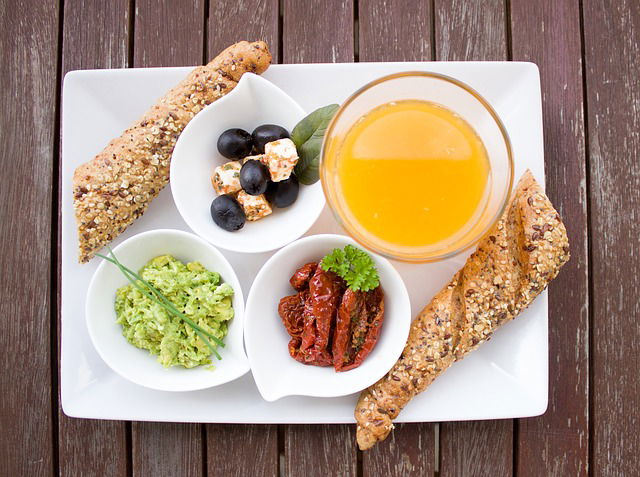
Health dieting and regular exercise can take 67% of our life expectancy.
A healthy diet, which includes whole grains, fruit and vegetables, can prevent us from many chronic disease, such as obesity, type 2 diabetes, heart disease, high blood pressure and some types of cancers.
Particularly, these foods are good for reducing risk of cardiovascular disease. They also help people lose body weight.
One common feature of all these foods is high amount of dietary fiber. In one previous article, we talked about how dietary fiber can help control type 2 diabetes.
In type 2 diabetes, the pancreas makes too little insulin or does not use insulin well. Dietary fibers can help produce short-chain fatty acids that nourish our gut lining cells.
It has been shown that the lack of short-chain fatty acids is associated with type 2 diabetes and other disease.
Thus, dietary fiber can help patients control the disease. It also can help reduce inflammation and control appetite.
So which high-dietary-fiber food is the best for reducing cardiovascular risk? One recent study answers this question.
Researchers checked the effects of these fiber sources separately on weight loss and cardiovascular disease in overweight and obese women.
A total of 75 women participated in the study. They took one of three weight loss diets that were rich in whole grains, rich in fruits and vegetables, or both.
The whole study lasted 10 weeks, and the researchers measured the women’s body weight, waistline, and cardiovascular risk in the beginning and the end of the study.
The team found that during the 10-week dietary intervention, women on the whole grain diet lost more body weight and waistline, reduced more systolic blood pressure and blood sugar compared to women on the other two diets.
In addition, the whole grain diet group showed higher high-density lipoprotein (HDL) cholesterol than the other diet groups after the study.
No difference was found in the diastolic blood pressure and low-density lipoprotein (LDL) cholesterol among the three groups.
It is important to note that HDL cholesterol is “good” cholesterol and LDL cholesterol is “bad” cholesterol. Cholesterol moves through your body while inside lipoproteins.
HDL is good because it means the cholesterol is expelled to the liver not to your arteries, while LDL makes the cholesterol accumulated in your artery walls.
Within each group, all women reduced body weight, waistline and fasting blood sugar. But only the group on diet rich in fruits and vegetables showed lower LDL cholesterol over 10 weeks.
Based on the findings, the researchers concluded that diet rich in whole grain may have a better effect to reduce cardiovascular risk.
Copyright © 2018 Knowridge Science Report. All rights reserved.



